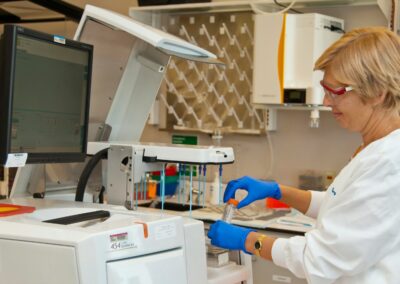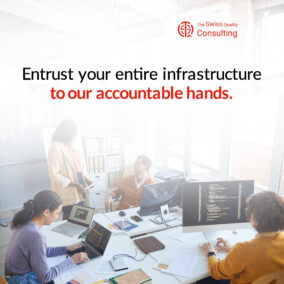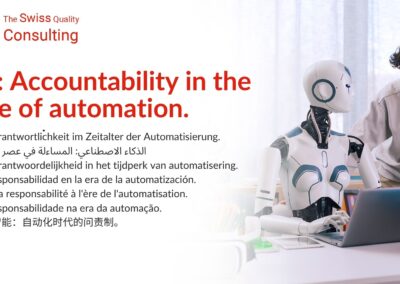Revolutionizing Humanitarian Efforts with Blockchain Technology
The Role of Blockchain in Enhancing Transparency in International Aid
The use of blockchain in international aid and humanitarian efforts can ensure the transparent and accountable distribution of funds and resources. This innovative approach is particularly relevant in regions such as Saudi Arabia and the UAE, where technological advancements are rapidly being adopted to improve various sectors. Blockchain technology offers a decentralized and immutable ledger system that records every transaction, making it possible to track the flow of aid funds from donors to beneficiaries with unparalleled accuracy and transparency.
In Saudi Arabia, the adoption of blockchain for international aid is part of the country’s broader strategy to harness modern technology for social good. The Kingdom’s Vision 2030 emphasizes the importance of innovation in achieving sustainable development goals. By utilizing blockchain, Saudi Arabia can enhance the efficiency and effectiveness of its humanitarian efforts. For example, blockchain can be used to create a transparent record of aid disbursements, ensuring that funds are used as intended and reaching the right recipients. This reduces the risk of corruption and fraud, which are significant challenges in traditional aid distribution systems.
Similarly, in the UAE, blockchain technology is transforming the landscape of international aid. Dubai, in particular, has been at the forefront of blockchain adoption, with numerous initiatives aimed at leveraging this technology for social impact. By implementing blockchain in humanitarian projects, the UAE can ensure that aid is distributed transparently and efficiently. This is especially important in a region that hosts a large number of refugees and displaced persons. Blockchain can provide a reliable and verifiable record of aid transactions, ensuring that resources are allocated fairly and equitably.
Enhancing Accountability with Blockchain in Humanitarian Efforts
Blockchain technology not only enhances transparency but also significantly improves accountability in international aid and humanitarian efforts. The immutable nature of blockchain ensures that once a transaction is recorded, it cannot be altered or deleted. This creates a permanent and auditable record of all aid-related activities, which can be accessed by donors, aid organizations, and beneficiaries. This level of accountability is crucial for building trust and credibility in the humanitarian sector.
In Riyadh, the implementation of blockchain in humanitarian projects is strengthening the accountability of aid organizations. By providing a transparent and tamper-proof record of aid distribution, blockchain helps to ensure that resources are used efficiently and effectively. This is particularly important in crisis situations, where timely and accurate information is critical for making informed decisions. Blockchain technology enables real-time tracking of aid deliveries, allowing organizations to respond quickly to changing needs and priorities. This not only enhances the overall effectiveness of humanitarian efforts but also ensures that aid reaches those who need it most.
Dubai’s humanitarian sector is also benefiting from the accountability provided by blockchain technology. By leveraging blockchain, aid organizations in Dubai can create a detailed and verifiable record of their activities, which can be shared with stakeholders and donors. This increases transparency and accountability, fostering greater trust and confidence in the humanitarian sector. Additionally, blockchain can help to streamline administrative processes, reducing the time and costs associated with aid distribution. This allows organizations to focus more on delivering aid and less on managing paperwork and bureaucracy.
Driving Business Success Through Leadership and Innovation
The integration of blockchain in international aid is not only a technological advancement but also a strategic move towards driving business success in Saudi Arabia and the UAE. Effective leadership and management skills are essential in leveraging these technologies to achieve organizational goals. By fostering a culture of innovation and adaptability, business leaders can ensure that their companies remain competitive in the rapidly evolving humanitarian landscape.
In Saudi Arabia, business executives are increasingly recognizing the strategic importance of blockchain in enhancing operational efficiency and accountability in humanitarian efforts. By adopting blockchain-based solutions, organizations can streamline their processes, reduce costs, and improve transparency. This not only enhances their competitiveness in the global market but also aligns with the Kingdom’s Vision 2030, which aims to diversify the economy and foster technological innovation. Effective project management is crucial in this context, as it ensures the successful implementation of blockchain initiatives and maximizes their impact on business performance.
Similarly, in the UAE, business leaders are leveraging blockchain technology to drive growth and innovation in the humanitarian sector. By integrating blockchain solutions into their operations, organizations can offer superior services, attract more donors, and expand their reach. This is particularly important in a competitive business environment like Dubai, where staying ahead of technological trends is key to success. Strong leadership and management skills are essential in navigating the complexities of blockchain adoption and ensuring that it delivers tangible benefits for the organization. By embracing blockchain technology, businesses in the UAE can achieve greater efficiency, transparency, and accountability in their humanitarian operations.
Conclusion: Embracing Blockchain for a Transparent Future
In conclusion, the use of blockchain in international aid is revolutionizing the humanitarian sector in Saudi Arabia and the UAE. By leveraging blockchain technology, organizations can ensure the transparent and accountable distribution of funds and resources, enhancing the overall effectiveness of humanitarian efforts. This not only builds trust and credibility in the humanitarian sector but also aligns with the broader visions of these regions for technological innovation and social impact.
As the humanitarian landscapes of Saudi Arabia and the UAE continue to evolve, embracing blockchain technology will be essential for achieving long-term success and maintaining a competitive edge. Business leaders and aid organizations must develop the necessary skills and strategies to effectively integrate blockchain solutions into their operations. By fostering a culture of innovation and adaptability, they can unlock the full potential of blockchain technology and drive growth in a rapidly changing humanitarian environment. The future of international aid is here, and those who are ready to embrace blockchain will undoubtedly lead the way in transforming the global aid ecosystem.
#Blockchain #InternationalAid #HumanitarianEfforts #SaudiArabia #UAE #Riyadh #Dubai #BlockchainTechnology #ArtificialIntelligence #ModernTechnology #BusinessSuccess #LeadershipSkills #ProjectManagement























